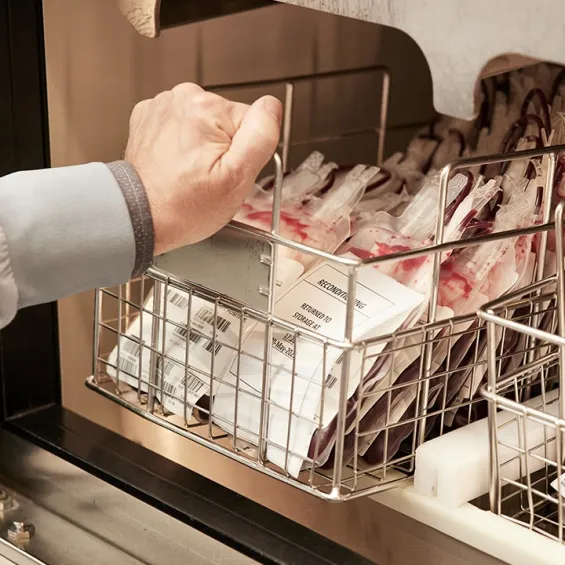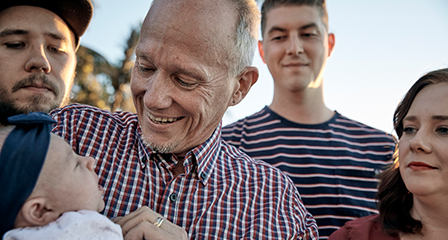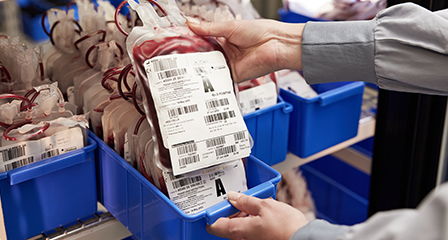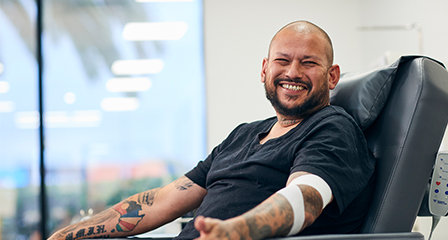Blood supply levels
What's needed in
What does this mean?
Blood donations are divided into three parts: red blood cells, plasma and platelets. And we always need all three.
The blood types represent red cells, after we’ve sent hospitals what they need. Every day we send hospitals more, and every day donors come in to give. We always need to have enough to be ready to meet hospital demand.
- Very low: give blood now. Nobody will miss out on the blood they urgently need, but someone in a less urgent situation may have to wait a bit.
- Low: give blood now. More donors need to boost the supply and keep it steady.
- Need more: you should give blood in the next 5 days or so.
- Ok: you could give blood to keep things on the up and up, or consider giving plasma.
- Good: your blood donation will keep the supply strong, or you should give plasma between blood donations.
- Not collected: we collect enough red cells from other regions, but you should consider giving plasma.
The yellow drop represents plasma of all blood types.
- Need more: you should give plasma as soon as you can, unless your blood type is very low right now.
- Ok: you should consider giving plasma or give between blood donations.
- Good: we always need more plasma. Things are looking good right now, but you can keep the supply strong.
Australia always needs more donations. Whether you know your blood type or not.
Book a donationHow can you help?
Find out by selecting one of the buttons below
Blood type fast facts

Your blood type is a combination of your ABO type (A, B, AB or O) and your Rh group (positive or negative).
The types are: O positive, O negative, A positive, A negative, B positive, B negative, AB positive and AB negative.
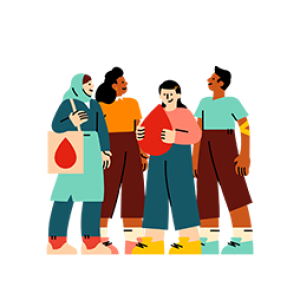
Someone who is AB positive can receive red cells from a donor of any other blood type, but someone who is O negative can only have the same type.
That’s why Lifeblood needs donors of all blood types to help all patients.

Simply donate blood or plasma and we’ll tell you your blood type.
Whether you’re a chirpy B positive, or a rare and elusive AB negative, we’ll love you and your donations just the same.
FAQs
- How do you know how much blood you need?
Our team looks at annual and seasonal trends, formulas, and more data to predict how much blood hospitals will need. For example, we know that hospitals order more O negative blood (which can be given to anyone) to keep on hand for emergencies. So, we need to have more O negative blood ready to go.
- How do I find out my blood type?
By giving blood! We’ll test for your blood type and let you know soon after your donation.
- It looks like there’s enough of my blood type. Should I donate?
Yes! The red blood cells we have will be used quickly. There’s a kid with cancer who needs them. A new mum with complications during childbirth. Someone going through surgery. We always need more to keep the shelves stocked.
Or, think about giving plasma instead. It can be used in 18 different life-giving ways. Right now, Australia needs more plasma donations than all blood types combined.
No matter what, we always need more donations. Of all types.
- What are red cells?
They’re the part that give your blood its colour. They carry oxygen around your body, which you need for everything you do, from working out at the gym to turning your head. It’s safe to say red cells are pretty important.
Around a third of donated red cells go to patients with cancer or blood diseases.
- What's plasma?
Plasma’s the yellowish liquid part of your blood that holds all the other blood cells. It’s used in a whopping 18 different life-giving ways. When you give a blood donation, it contains some plasma. But, when you donate just plasma, you give about twice as much.
- Does blood go off?
Sort of. It certainly doesn’t last forever.
Red cells last up to 42 days after they’re donated, including the time it takes to test, process and transport them.
Plasma lasts up to a year when frozen, and platelets only last 7 days. Most are used well before then, though.
- Which blood types are needed most?
All of them. We always need blood donations, but sometimes we need plasma more. If we have enough red cells of your blood type right now, we might ask you in a donor centre, by email or by phone to consider giving plasma instead.
- What can I do to help the blood supply?
Donate or spread the word.
Giving blood is the quickest and most effective way to add to the blood supply. After all, every drop counts.
If you’re not able to donate or want to make an even bigger impact, you can share our message in person or on social media. Give us a follow @lifebloodau to keep an eye out for urgent calls for blood.
